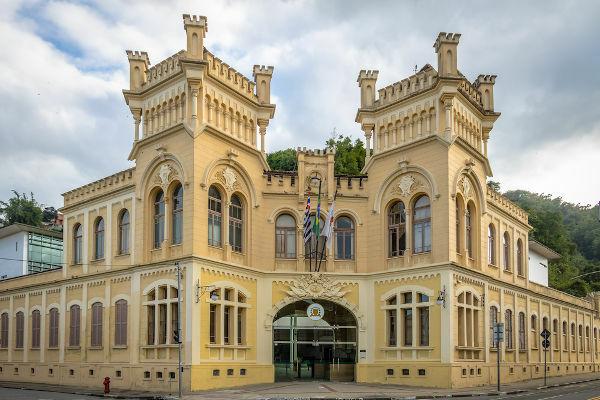You councilors they are political agents elected in direct election to work in the municipal legislature. They are representatives of the population, acting in the interest of the people and for the common good of the city for which they were elected. the councilors work in city councils spread throughout Brazil and, in addition to legislating for the people, must inspect The city hall of their cities.
Accessalso: What is the difference between a null vote and a blank vote?
Councilor in Brazilian politics
Brazil is a decentralized state that has three spheres of power:
Unity;
States;
counties.
Each of these spheres has powers Executive and Legislative. In the municipal context, the Legislative is represented by the councilor, a political agent who is chosen by the population through municipal elections.

O city councilor is elected to a four-year term and with the possibility of unlimited reelection. He acts as a representative of the population, proposing improvements for the city for which he was elected and monitors the work carried out by the city. The councilors gather to work in the Municipal Chambers, bodies that have existed in Brazil for a long time.
What is the role of the councilor?
The councilor is an agent who holds a position that corresponds to the Legislativemunicipal, therefore he is the representative of the local population, that is, of a city. Thus, he must act to ensure the benefit of the population of his city.
The councilor's work takes place on two fronts. The first one is legislate, proposing laws, voting on projects, either to approve them or to reject them, etc. The other important role of the councilor is to to monitor the work of the municipal Executive, that is, of the mayor and his secretaries. Thus, whenever an irregularity is found, it is the councilor's role to point out the error.
In this context, the functions assigned to the councilor are:
vote on the agendas related to the formulation of the city's annual budget;
develop projects for the development of the city;
work on the regulation of public office;
decide on the proposition of places;
propose city holidays;
act to veto or approve Executive actions;
work on planning the Master Plan;
define the boundaries of the municipality;
propose the creation of new neighborhoods;
modify the city's zoning;
decide on land use;
stipulate appointments of public assets, etc.
With regard to the monitoring work, the councilor can request information requests as a way of inspecting certain actions taken by the city hall. It can also form parliamentary committees of inquiry to investigate irregularities and must always monitor the city's accounts.
Accessalso: What are ftake news?
Who can become alderman?
The Electoral Court of Brazil stipulates some requirements for a person to become a councilor in our country, namely:
Brazilian nationality;
age of majority (18 years);
residency in the city where you will run for office at least six months before the election;
be literate;
being up to date with the Electoral Justice;
have party affiliation;
proof of reservist (determination for men).
Once all these criteria are met, a person can apply for the office of councilor and take office if he receives a sufficient amount of votes. Once elected, the person will take office and assume a position of four years, during which time he/she will work with the right to remuneration.
THE pay varies from city to city, going fromR$5600 to about R$21 thousand reais|1|. In any case, Brazilian legislation determines that spending on councilors cannot exceed 5% of the city's revenue. Remembering that each city has a number of councilors according to its population, with 9 being the minimum number and 55 the maximum number.
History of City Councils
Historically speaking, the City Councilsarrived in Brazil during the period of colonization and they were a replication of the mode of municipal political organization that existed in Portugal and that had emerged there in the Middle Ages. The existence of an elected political office with the objective of working for the improvement of the city is even older and dates back to the Roman Empire.
In Rome there was theEdil, a magistrate whose function was to work for the full functioning of the services in force in Roman cities. It, therefore, guaranteed the execution of public works, control of supply, etc. From Rome also came the term that gave rise to the word “alderman”. This word derives from the Latin term “verea” or “path”.
Returning to the Brazilian context, the position of councilor is directly linked to the Municipal Councils. THE first camera installed in Brazil appeared inThey areVincent, in 1532. The function of this body was to care for local administration, that is, the administration of towns and cities that were built in Brazil by the Portuguese.
This body was formed by the "good men”, that is, Portuguese Catholics, married, over 25 years old and with property. Only they could run for City Council positions and only they could vote for candidates. The councils were responsible for matters relating to taxes and ensuring the well-being of the village.
From 1603, the ordinationsPhilippines determined that elections for the City Councils would take place every three years and, as before, only good men had the right to run for and vote for candidates. In the chambers, one of the existing positions was that of councilor.
From the Iindependence of Brazil, City Councils have undergone changes, Because the Constitution of 1824 determined that councilors would administer the cities and towns, but would not have judicial power. From a law of October 1, 1828, it was regulated that the chambers would be formed by councilors, who would hold a four-year term and would be elected in elections, which, in turn, would take place in 7 of September.
In the 1830s, it was planned to withdraw municipal power from the Municipal Chambers and transfer it to the city halls, but this only really happened in the 1890s, when the first city halls began to be formed. Thus, the municipal power is no longer concentrated only in the Municipal Chambers.
In the republican period, the municipal councils were closed on two occasions, both for Getulio Vargas: the first in 1930, when Vargas became Brazilian president, and the second with the coup of the new state. These actions were part of Vargas' effort to promote the centralization of power.
Accessalso: Do you know the history of elections in Brazil?
Councilor in the New Republic
We have already seen that the councilor is a political agent who acts at the municipal level and his power is limited only to the limits of the city where he resides and was elected. All assignments of councilors are currently determined by the 1988 Constitution, a document that was prepared shortly after the end of the Military dictatorship.

Councilors are representatives of the population and are elected in municipal elections, carried out throughout the country, with the exception of the Federal District. The number of councilors that each Brazilian municipality has was also established by the Constitution, as well as the term of office.
Municipal elections are therefore held during this period (every four years), and a candidate for councilor can be reelected as many times as he wants. Every Brazilian citizen aged 16 or over is entitled to vote. For this, you must be up to date with the Electoral Court and be in the city where your voter registration card was registered.
Note
|1| Find out what a councilor does, how much they earn and what their term of office is. To access, click on here.
By Daniel Neves Silva
History teacher
